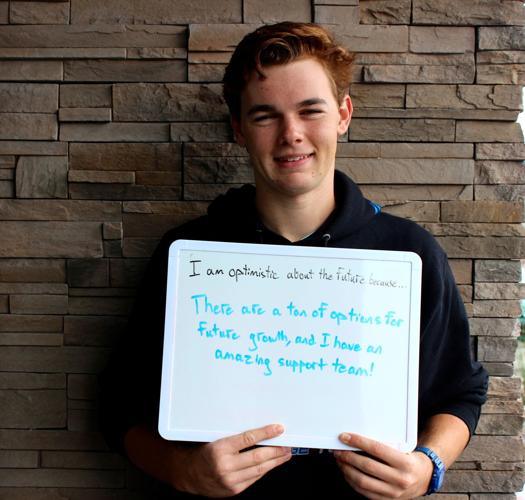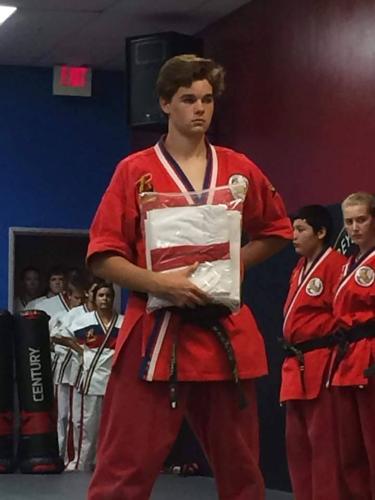Ten years ago, Benjamin Chapman wanted nothing to do with martial arts.
For about a month, he watched, bored, as his younger brother learned the ways of a white belt. Eventually, he reasoned that if he had to sit there for his brother’s classes, he might as well get involved.
Now, he is a third-degree black belt and head instructor at West Coast Martial Arts, the studio that taught him discipline and confidence.
Martial arts has changed his life. The studio, 7225 E. Broadway, emphasizes physical, mental and spiritual work and the development of good character.
“We always have kids who come and parents say they’re shy — I was definitely shy — or (parents) say they just want their kid to be active,” says Chapman, 19. “Martial arts is one of those sports and lifestyles that can attach to any aspect to make it better.”
As a head instructor, Chapman works with every class at the studio — usually four or five a day — teaches beginner classes, talks with kids and parents and steps in if master instructor and owner Jason Cole is out.
When Chapter first showed up at the studio, “In terms of martial arts, he wasn’t the most gifted kid, but he had a good work ethic and didn’t let anything stop him,” Cole says. “He refused to quit when things got tough — and in our system, a challenge for young people is when things get difficult, they stop training at that point.”
Not Chapman. He wants to own a studio one day and is a sophomore studying business at the University of Arizona.
“Unlike a lot of people at a young age, when they get a job and are hired, you give them a job description and that’s what they do. It’s black and white,” Cole says. “The thing with him is he was never afraid to take it a step forward. He took a lot of initiative.”
Chapman started helping with classes as a blue belt in 2007 or 2008, joined the staff several years later and became head instructor in 2014. In June, he plans to test for his fourth-degree black belt.
“After my first-degree black belt, I was almost always at the studio. When you come up in training, you have to be there from 4 to 8 p.m. to train and practice,” he says.
Even after earning the belt, he continued with the schedule, helping and cleaning around the studio. He keeps a similar routine these days, Tuesdays through Fridays from 3:30 to 9 p.m. and a few hours on Saturdays.
The first time Cole left Chapman in charge of his school for the day, Chapman wasn’t yet 18. When Cole called to check in later that day, he discovered Chapman had signed up two new students.
“I started ignoring his age and said, ‘You’re doing this. Let’s challenge you and see if you can handle that,’” Cole says.
Chapman works with about 150 students every week, while juggling his UA coursework.
He does it because he saw how martial arts changed his own life.
“I was kind of a chubby kid before, but now I’m constantly active,” he says.
He also learned to set and achieve goals.
“I think that’s the biggest thing people struggle with,” he says. “We have recently been talking about New Year’s resolutions. People start goals and drop off them, but as martial artists, we have to try and set a goal and complete it no matter what it is.”
His own day is to someday own a studio that transforms students — kids and adults — into confident and focused individuals. Cole was impressed early on when Chapman began pulling aside struggling students after class to connect on a personal level.
Of the classes Chapman teaches now, the “Little Dragons” — or kiddos ages 3 to 6 — is his favorite. There, transformation often happens quickly, with first-day tears and jitters replaced by excitement in future classes.
“I had one recently hugging up to her mom and crying. She didn’t want to do class,” Chapman says. When that happens, he gently explains what happens in class and coaxes students to the mat.
“She cried the entire class, but she did everything. It wasn’t like it was something hurt her or there was something wrong, but it was a new thing for her. A week after that, she was coming and high-fiving me and smiling the whole time.”





